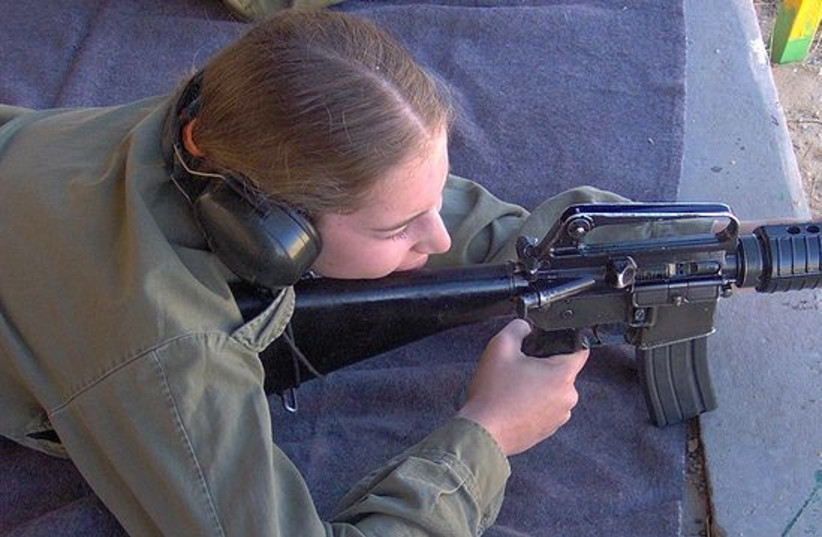A majority of high school students in Israel are not given the tools to understand or discuss controversial or difficult topics, a new survey published on Monday morning has found.
Conducted by the Israel Defense and Security Forum (IDSF), the survey results found that 91% of Israel’s high school teachers believe that students are not sufficiently engaged in the challenges of Israeli society.
Furthermore, the survey shows, an estimated 70% of the 520 participating teachers believe that the education system as a whole does not adequately prepare students for their entry into the IDF after graduation.
"There is a fear among educators to touch on explosive topics from a geographical standpoint, as well as on the value of protecting the homeland and on its conflicts"
Israel Defense and Security Forum
The IDSF was founded in 2020 by former head of the IDF Chief of Staff’s office Brig.-Gen. (res.) Amir Avivi and other retired senior officials from Israeli security establishments. The movement believes that “Israel’s security must be based on its ability to protect itself, by itself,” their website states.
Of those who participated in the survey, 67% believe that the Israeli-Palestinian conflict is barely covered in the national curricula, and 65% believe that students are not familiar enough with the State of Israel and its history and conflicts.

In addition to the questionnaire provided to the teachers, a series of discussions and in-depth interviews were held to understand and highlight the main difficulties preventing the deepening of education on these issues.
“There is a fear among educators to touch on explosive topics from a geographical standpoint, as well as on the value of protecting the homeland and on its conflicts,” the IDSF stated, summarizing the findings of these conversations.
Speaking to Israel Hayom about this phenomenon, lead IDSF researcher Col. (res.) Ronen Itzik explained that high school students today “have a basic lack of knowledge about what is happening here and how we got here. They live here, but do not really know where ‘here’ is, because the textbooks, the curricula and even some of the teachers themselves, try to avoid these explosive topics.”
Falling IDF conscription rates
Yossi Kuperwasser, former director-general of Israel’s now disbanded Strategic Affairs Ministry, stressed to Israel Hayom the importance of teaching the history of the Israeli-Palestinian conflict to students, calling it “an integral part of Zionism.”
“The youth need to understand and recognize the context within which the wars take place, in order to understand the narrative,” he explained. “When this does not happen, it erodes their commitment to what they are required to take risks for as soldiers.”
In recent years, the rates at which men and women are drafted into the IDF have fallen significantly despite the country’s mandatory conscription. According to a 2019 report, only 69% of men and 56% of women were entering the IDF after completing high school. In comparison, these numbers stood at 77% and 69% respectively in 2005.
The falling conscription rates are making a visible difference within the IDF. In March of this year, the Foreign Affairs and Defense Committee reported a shortage of 6,000 troops in key positions such as combat and technological roles, further highlighting the diminishing interest in high school graduates when it comes to enlisting.
In a statement regarding the results of the survey and the cause for concern that it brings, Avivi noted, “the situation reflected in the effectiveness of the education system indicates a dramatic mismatch between what is desired and what is required.”
This, he said, “indicates the national need to build a supplementary curriculum to strengthen the national core values of the Israeli youth.”
“The education system is a significant tool for strengthening the youth’s familiarity with meaningful service, and strengthening its work is at the heart of the values of Israeli society,” he explained.
